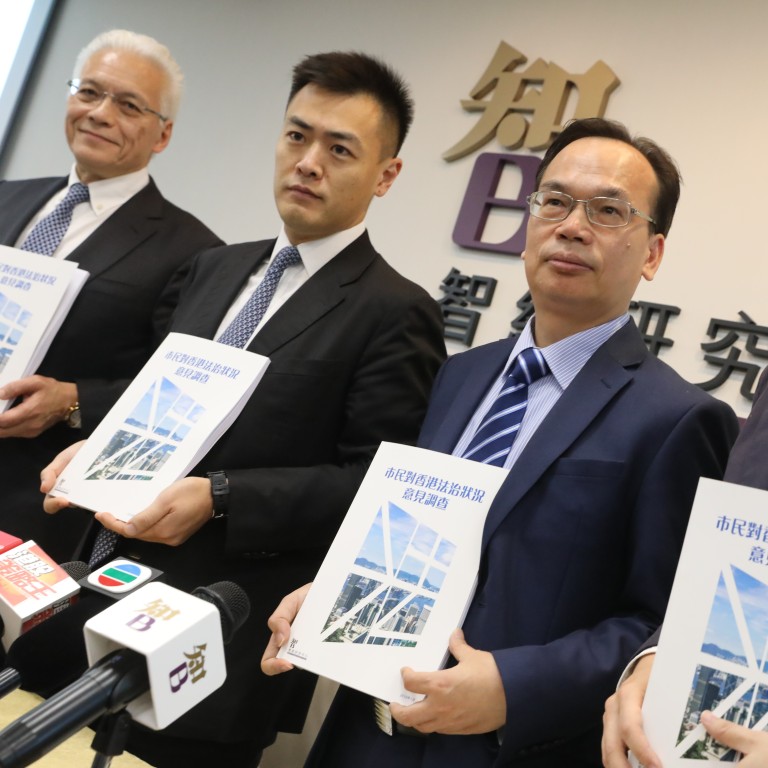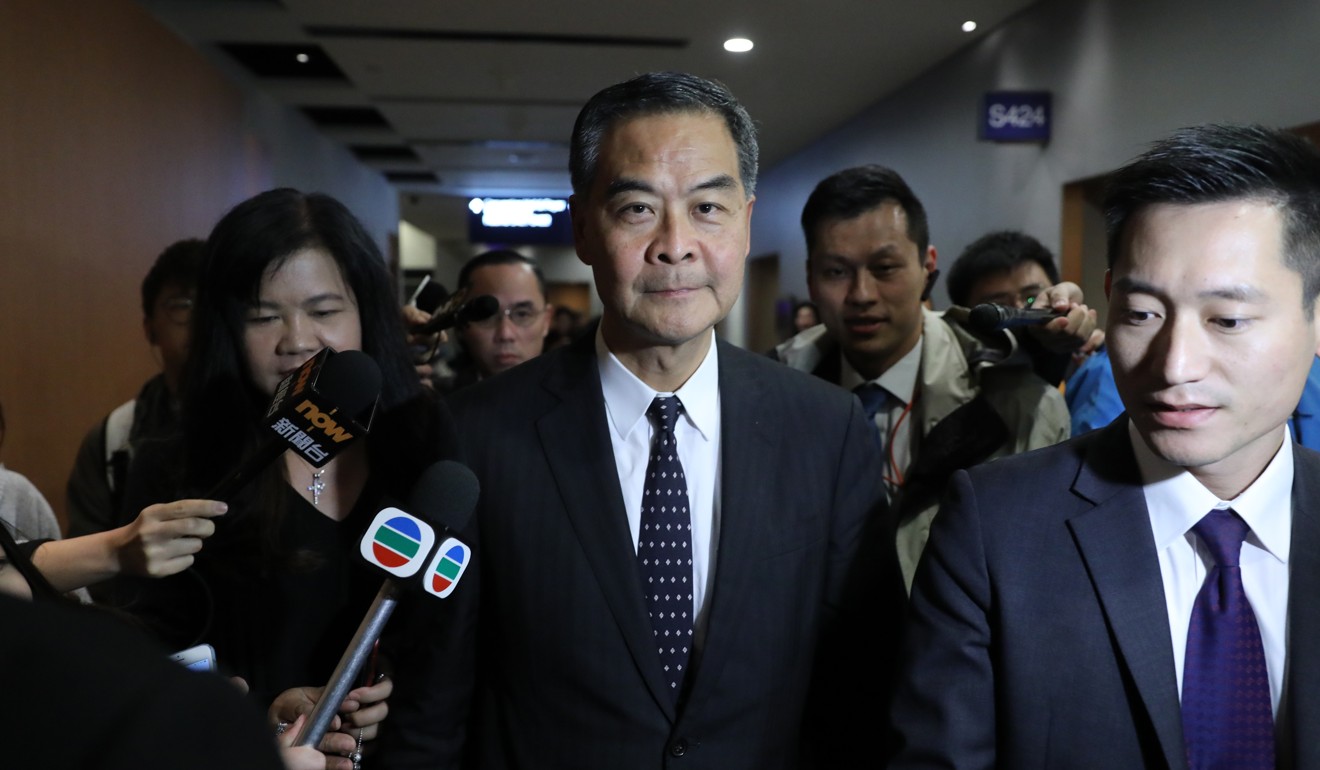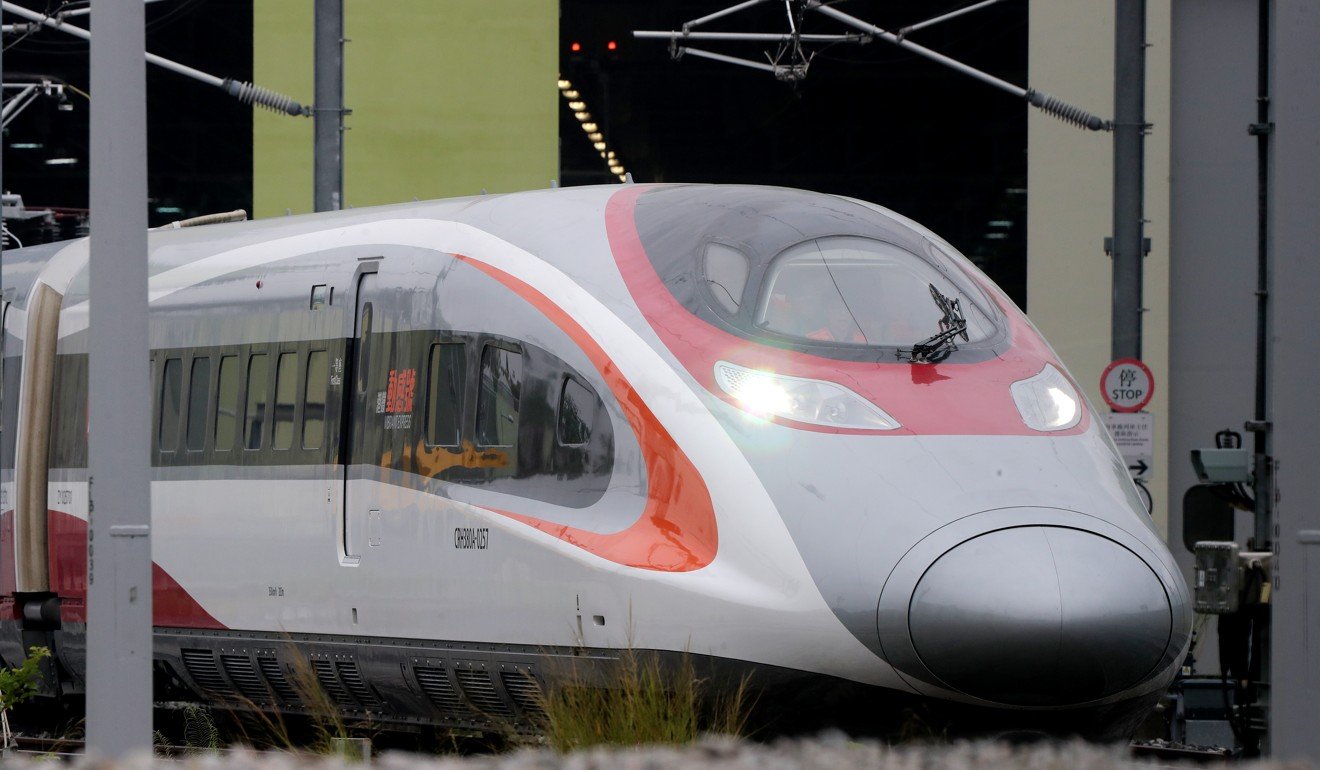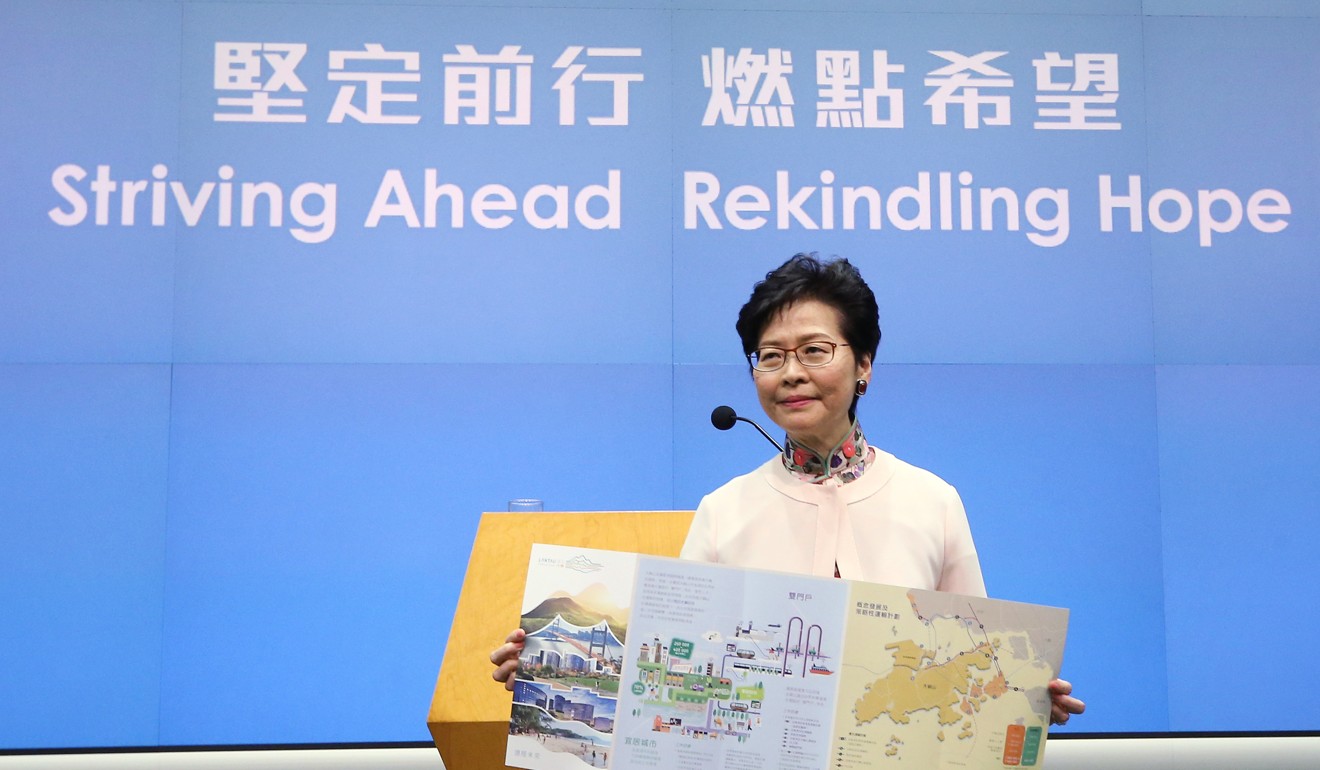
Hongkongers don’t trust the government not to abuse its power when it comes to the rule of law, survey shows
- Study commissioned by Bauhinia Foundation Research Centre polled public in 2017 and 2018
- Results show residents value judicial independence highly, but consider its implementation to be average at best
Hongkongers value judicial independence the most but do not rate its execution very highly in the city, a survey commissioned by local think tank Bauhinia Foundation Research Centre has found.
The research undertaken in 2017, and again last November, showed judicial independence consistently ranked as the most important aspect of the rule of law, with close to 20 per cent of 1,000 respondents ranking it most important. That percentage rose to 33 per cent when it included those who ranked judicial autonomy first.
But both judicial independence and judicial autonomy only ranked in seventh and eighth positions out of 10 elements surveyed, when it came to implementation.
On a scale of 0 to 10, about 1,000 respondents in each year graded judicial independence at 5.62 in 2017, and 5.55 last year.

Lau Ming-wai, vice-chairman of the research centre, would not say what he believed the cause of the lower score on judicial independence was, nor would he comment on any future impact the justice department’s decision to drop its case against former chief executive Leung Chun-ying might have.
But Lau noted that Hong Kong’s courts had handled a number of controversial or politically sensitive cases in recent years, including a pending verdict on Occupy leaders.
He urged the public not to draw the courts into politics.
“If you mix political elements into judicial proceedings, it would easily lead to confrontational situations, where both sides would prefer a result favourable to their own stance,” he said.
The research was conducted by Chinese University, which asked a total of 2,000 respondents to rank the importance of 10 rule of law elements, including maintaining law and order, and equality before the law.

Respondents were then asked to grade these 10 aspects on how well they were implemented in each year.
While maintaining law and order was considered fourth in terms of importance, it ranked the highest in performance, scoring 6.83 last year, and 6.79 in 2017.
Respondents considered Hong Kong’s ability to prevent government abuse of power the lowest out of all, giving it 5.17 in 2018, and 5.23 the year before.
Those surveyed made open government and judicial autonomy the second and third lowest aspects.
The government has been widely criticised on these topics over the past two years.

In June last year, the government’s co-location bill was bitterly contested and passed by the Legislative Council following months of wrangling. Under the bill, part of the Hong Kong terminus of the high-speed railway linking the city with Guangzhou was placed under the jurisdiction of mainland Chinese authorities. Legal experts had questioned whether the bill would undermine Hong Kong’s judicial system.
City must highlight its judicial independence to reassure international community
In October, Chief Executive Carrie Lam Cheng Yuet-ngor was slammed for abusing her power when she proposed the creation of a new metropolis spanning about 1,700 hectares on reclaimed land.
The announcement came before a government-appointed task force had submitted its public consultation report on how to increase land supply.
Dr Chung Kim-wah, a social science scholar at Polytechnic University, said the lower scores on judicial independence and autonomy could be related to the disqualification of lawmakers, and other political controversies affecting the public’s perception of the legal system.
Six democratic and pro-independence lawmakers have been unseated since 2017, after the courts ruled they had not properly taken their oath of office.
“These decisions would be viewed as [politicians] putting pressure on the courts, that would worry the public,” Chung said.
Chief Justice Geoffrey Ma Tao-li has repeatedly said the judiciary would make rulings based on the law, and would not be dragged into political or social debates.


